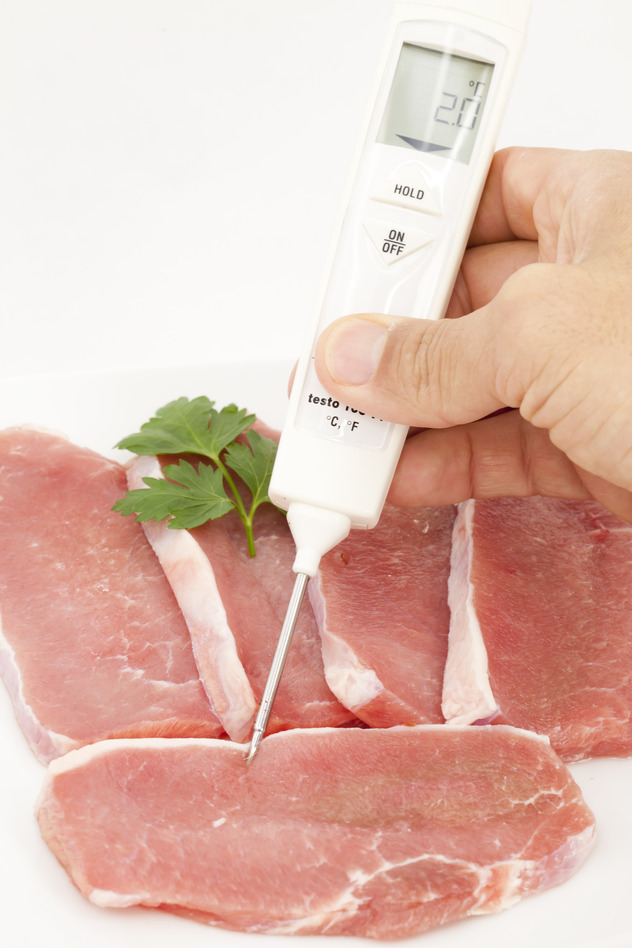Three Reasons Why You Should Take Food Safety Seriously
The importance of food safety is something that is (unfortunately) commonly overlooked in kitchens of all kinds. However, it is extremely important that food safety precautions are taken seriously in health care settings, as it is a vulnerable population being dealt with.
Employees in healthcare should be educated on proper internal cooking temperatures for different foods, since the safe internal temperature varies among foods (Government of Canada, 2014). To ensure temperatures being taken are as accurate as possible, every facility is recommended to have a digital thermometer that is calibrated regularly (Government of Canada, 2014). Some tips on getting an accurate temperature of the foods being cooked are: take the temperature of the thickest part of the food, take the temperature more than once, and to ensure the thermometer is not touching any potential bones in meat since the bones heat up quicker and will give an inaccurate reading (Government of Canada, 2014).
The way a patient’s allergy is handled in a health care can determine the quality of life they are experiencing (St. Joesphs Health Care , 2015). It is important that allergies of a patient or resident are identified as soon as possible, because depending on the severity of the allergy, exposure to the allergen could be a life or death situation to the patient (Health Canada, 2009). If exposed to an allergen, patients could experience symptoms like having trouble breathing, dizziness, faintness, cramping, nausea, and many more (Health Canada, 2009). To avoid experiencing these symptoms, patients should have a recent allergy test done to know which foods to avoid, have an epinephrine injector available in case of anaphylactic shock reaction, and avoiding cross-contamination at all costs (Health Canada, 2009). Patients should also have a personalized treatment plan that identifies their allergies and triggers and recommended medication for allergic reaction (St. Joesphs Health Care , 2015).
Avoiding cross-contamination is beneficial for many reasons including: prevention of allergic reactions, prevention of bacteria growth, and prevention of causing food borne illness for the patients. There are lots of ways to avoid cross-contamination form beginning in the first place. The first way to do this is to ensure that all employees practice good personal hygiene and wash their hands regularly on the job (National Restaurant Association, 2013). Another way to prevent cross-contamination is to use separate equipment when knowingly preparing food for someone with an allergy or when dealing with ingredients like raw meat that contain harmful bacteria to the human body (National Restaurant Association, 2013). The final most effective way to avoid cross-contamination is to ensure sanitation of all equipment and surfaces after preparation of food is complete (National Restaurant Association, 2013). Dealing with raw foods that could contain harmful bacteria is unavoidable, but the harm it could case to patients is avoidable when following the proper precautions.
Proper cooking internal temperatures, allergens, and cross-contaminations are a few of the main aspects of food safety but certainly not the only ones. To ensure the safety of patients and residents in healthcare, all employees should be sufficiently trained and supervised to ensure proper food safety procedures are being completed.

